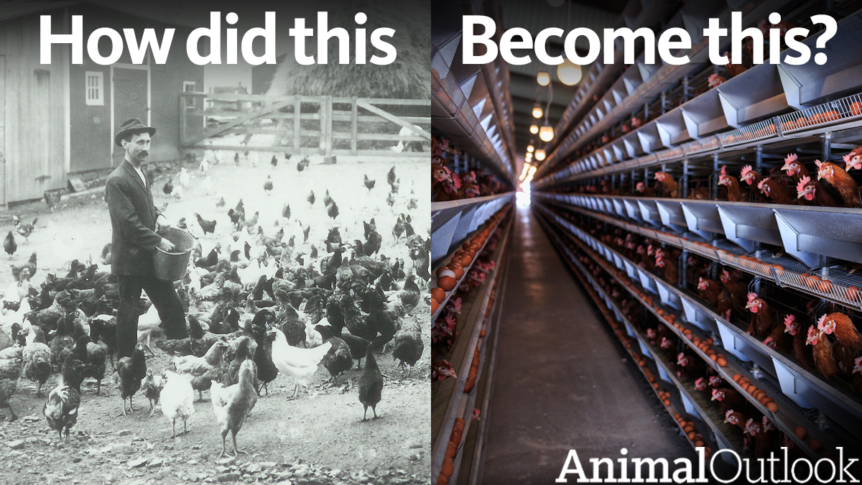- Like
- Digg
- Del
- Tumblr
- VKontakte
- Buffer
- Love This
- Odnoklassniki
- Meneame
- Blogger
- Amazon
- Yahoo Mail
- Gmail
- AOL
- Newsvine
- HackerNews
- Evernote
- MySpace
- Mail.ru
- Viadeo
- Line
- Comments
- Yummly
- SMS
- Viber
- Telegram
- Subscribe
- Skype
- Facebook Messenger
- Kakao
- LiveJournal
- Yammer
- Edgar
- Fintel
- Mix
- Instapaper
- Copy Link
Picture this: You’re an American in the year 1910. Half of the population works on rural farms, including you. You farm a small number of different farmed animal varieties, all who live on the acres of grass that surrounds your home. You watch the cows swish their tails as they graze, the pigs roll gleefully in mud, and the chickens socialize in their own designated pecking order. You have plenty of land to house them, and just enough animals to feed your family.
In just ten years, this small scale system would completely change for the worse.
As the Industrial Revolution swept across the country, Americans found themselves launched into accessibility through higher standards of living. As this new situation grew, the population swelled. More food than ever before was needed to sustain this growth. Therefore, farmers turned to technology for mass production to accommodate the population.
High variety, small scale farms were traded for giant indoor facilities that could accommodate the largest amount of animals for the cheapest cost and smallest amount of necessary acreage.
It didn’t stop there, however. Even with the grossly increased amount of animals kept on a disproportionally smaller area, the industry still needed to make the process of harvesting animals and their products faster and cheaper.
This led to the introduction of antibiotics and unnatural feeding processes to make the absolute most profit out of each animal. Pigs are now genetically bred to reach enormous sizes in a short amount of time, resulting in bone structures that are not designed to support this unnecessary body weight. Cows are bred over and over to create the most amount of dairy and beef products possible. Chickens are stuffed in tiny wire cages to make egg collection more convenient.
In just half a century, this system of animal production became standardized. Today, 94% of animals destined for human consumption are supplied by “farms” operating using these processes.
It’s not too late to break this industry of cruelty and gluttony. Fight against the unethical treatment of farmed animals by leaving them off your plate.
Looking for recipes, tips and resources to help you on your plant-based journey? Check out TryVeg and our Facebook support group for VegWeek.

